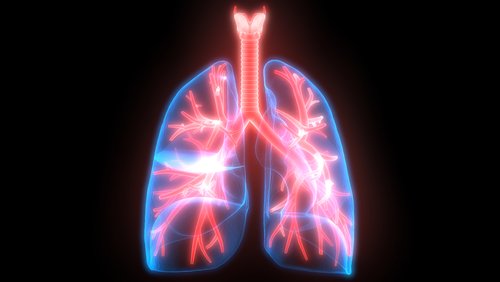A new study reported that smoking might influence the course of progression in IPF patients, although further investigation is needed to better understand this association.
Previous research has shown that cigarette smoking is associated with the risk of IPF. However, reports on how smoking affects survival in these patients are controversial.
Besides smoking, comorbidities have also been reported to influence the progression of IPF. Patients with several comorbidities usually exhibit worse survival than those without. The most common comorbidities among IPF patients are pulmonary hypertension, chronic obstructive pulmonary disease (COPD), coronary artery disease, obstructive sleep apnea, lung cancer, and gastroesophageal reflux, among others.
In the study, “Effect of smoking and comorbidities on survival in idiopathic pulmonary fibrosis,” published in the journal Respiratory Research, researchers analyzed survival rates among IPF patients based on their smoking habits (nonsmokers, ex-smokers, and current smokers), comorbidities, gender, and medication used.
In total, 45 nonsmokers, 66 ex-smokers (having smoked regularly for over a year), and 17 current smokers with IPF were registered at an eastern Finnish hospital. Asthma, lung cancer, hypertension, heart failure, coronary artery disease, cerebral infarction, depression, and diabetes were among the comorbidities analyzed.
Pulmonary function tests were carried out, including spirometry tests. Information from lung biopsies or autopsies also was gathered.
When comparing ex-smokers with nonsmokers, men were found to be at a greater risk for shorter survival than women.
Current smokers were younger at the time of IPF diagnosis (at a mean age of 58.1 years) than nonsmokers (71.4 years) and ex-smokers (72.5 years). However, the median survival of nonsmokers and current smokers after diagnosis was longer (55 and 52 months, respectively) compared to ex-smokers (36 months).
Nonetheless, when the results were adjusted for age and severity, smoking was found to be unrelated to survival.
Regarding comorbidities, 21 patients (15.9%) did not have any comorbidities in the study group. Cardiovascular diseases were the most common comorbidities (72.7%). Women with IPF were more prone to asthma, diabetes, or high blood pressure than men with IPF.
Men who were current smokers, and who had smoked for more years and had more pack-years than ex-smokers, had more comorbidities — namely COPD and lung cancer — compared with ex-smokers.
However, when taking several factors into account, the team found that the number of comorbidities did not affect survival rates.
“No significant differences in the major comorbidities were detected between IPF patients with different smoking histories,” the team wrote. “Smoking seems to influence the course of disease in IPF since current smokers developed the disease at a younger age in comparison to non-smokers and ex-smokers.”
While it seems clear that smoking might influence the course of progression in IPF patients, the mechanism through which this occurs remains unclear and requires further investigation, the researchers noted.

